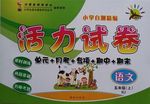题目内容
2.Scriptwriters love to complain.They are disrespected by producers,regarded dispensable (可有可无的) by directors,not duly credited by critics,treated like employees by actors-although few complain about being historically and chronically overpaid.Another thing they don't complain about is"the exhaustion of narrative",though it weighs very much on their minds.For scriptwriters to complain about the insufficiency of original ideas would be like a salesman complaining about a lack of inventory.It's not good for business.Writers have always known there are a limited number of storylines.And it is increasingly difficult to get out in front of a viewer's expectations.Almost every possible subject has not only been covered but covered exhaustively.How many hours of serial killer plot has the average viewer seen?Fifty?A hundred?This becomes painfully clear to any writer who attempts to orally tell his story (scriptwriter is closer to the oral tradition than it is to literature).Originality has always been in short supply.Does the proliferation (泛滥) of media mean that it is harder to be original today than it was 50years ago?Well,yea.Today's viewers live in a biosphere of narrative.Twenty-four-seven,multimedia,all the time.When a storyteller competes for a viewer's attention,he not only competes with simultaneously occurring narratives,he competes with the variations of his own narrative.That's real competition.This exhaustion of narrative is behind the rise of recent"counter-narrative"entertainments,such as:
1.Reality TV.Any regular viewer knows that reality television follows its own scripted formulas,but the appearance of being unscripted is essential to its appeal.Weary of so much predicable plot,the jaded viewer turns to reality.
2.Anecdotal narrative.The attraction of films such as Slacker and its mumblecore progeny (呢喃类) is the enjoyment of watching behavior impeded by the artifice of plot.It is not"fake",not"designed"(although of course it is).
3.Reenactment drama.Whether based on famous events or lesser-known ones,reenactment entertainment sells the premise that these events actually happened and were not cooked up by a staff of writers (though,again,if not actually cooked up,they were seasoned and served by writers).
4.Video games.The ability of the viewer to participate in the storytelling process creates an illusion of non-plan.
5.Mini-mini drama.Part of the appeal of three-to five-minute stories created for cellphones,YouTube and original programming is the illusion of not being crafted narratives.Just bits of life.
6.Documentaries.A staple of filmed entertainment since its beginnings,documentaries,historically the poor cousins of commercial cinema,have grown in number and viewership,an increase owed in part to the desire of viewers to look beyond predictable narratives.
Storytelling began as ceremony and evolved into ritual.It was commercialized in the medieval times,became big business in the 19th century and international industry in the 20th.The traditional concept of movies,a projected image in a dark room of viewers,feels increasingly old.Narrative will mutate (变异) and endure.Audio-visual entertainment is changing and narrative will change with it.
74.According to the author,scriptwriters seldom complain of havingB.
A.been looked down upon by producers
B.suffered the exhaustion of narrative
C.been considered unimportant by directors
D.been badly treated by actors and actresses
75.In which of the following entertainment forms can the viewers take part in its narrative process?B
A.Reenactment
B.Video games
C.Mini-mini drama
D.Documentaries.
76.Which of the following statements is TRUE to the fact?A
A.Narrative became commercialized in the middle age.
B.Storytelling became commercialized after the Middle Ages.
C.Narrative became a worldwide industry in the 19th century.
D.Storytelling grew into large business in the 20th century.
77.Which of the following statements is NOT in agreement with the author's ideas?C
A.Scriptwriting is nearer to the oral tradition than it is to literature.
B.Narrative exhaustion is responsible for the rise of anti-narrative entertainment.
C.It is less difficult to be original today than it was half a century ago.
D.The appearance of being unscripted is important to the appeal of Reality TV.
分析 本文属于说明文阅读,作者通过这篇文章主要向我们描述了创意的重要性,在现代的世界里,人们已经厌倦了可以预见结局的千篇一律的叙事,他们需要创新,而随着时间的发展,人们的国际化,好的创意变得越来越难.
解答 74.B.细节理解题.根据文章第一段"Another thing they don't complain about is"the exhaustion of narrative",though it weighs very much on their minds"可知编剧很少抱怨是因为他们叙事的极度疲惫;故选B.
75.B.细节理解题.根据文章第三段"Video games.The ability of the viewer to participate in the storytelling process creates an illusion of non-plan"可知在视频游戏中观众可以参与其中的叙事过程;故选B.
76.A.细节理解题.根据文章最后一段"It was commercialized in the medieval times,became big business in the 19th century and international industry in the 20th"这是中世纪商业化,在第十九世纪成为大企业,在二十世纪变得国际化;故选A.
77.C.推理判断题.根据文章第二段"Does the proliferation (泛滥) of media mean that it is harder to be original today than it was 50years ago?Well,yea"创意一直供不应求.并增殖(泛滥)媒体意味着很难被原比今天是50年前?嗯,是的,可知作者认为如今创意比50年前更难;故选C.
点评 考察学生的细节理解和推理判断能力,做细节理解题时一定要找到文章中的原句,和题干进行比较,再做出正确的选择.在做推理判断题不要以个人的主观想象代替文章的事实,要根据文章事实进行合乎逻辑的推理判断.

 活力试卷系列答案
活力试卷系列答案 课课优能力培优100分系列答案
课课优能力培优100分系列答案Kurt Muller and his wife Rita have spent eleven years making (43)D for the homeless of Berlin,Germany's capital.They first(44)Aone long hot summer when most Germans were(45)Aon holiday.Kurt and his wife stayed at home,made sandwiches,(46)Ba table in the street and gave food to the homeless.
The Mullers soon realized that food and clothing weren't(47)B."What these people also need is warmth and(48)D,"says Rita.The Mullers didn't(49)Cto give their phone number to the street people and told them to phone anytime.Rita (50)Cthere was somebody at home to answer the phone and their home was always (51)A to anyone who couldn't face another night on the street.
The couple were soon(52)Aall their time and money,so Kurt visited food and clothing companies to(53)Adonations.Today,over thirty companies(54)Cdonate food and other goods to the cause and volunteers help to(55)Cthem to the homeless.The public also give clothes and money and a shoe producer(56)Anew shoes.
Kurt and Rita receive no(57)Cfor their hard work."We feel like parents,"says Rita,"and parents shouldn't(58)Dmoney for helping their children.The love we get on the streets is our salary."Though Rita admits she often gets(59)D.She says she will continue with her work because she likes the feeling of having made a(60)Bin the world.
| 41.A.result | B.idea | C.truth | D.reason |
| 42.A.traditional | B.wealthy | C.developing | D.typical |
| 43.A.preparations | B.suggestions | C.house | D.meals |
| 44.A.began | B.met | C.called | D.left |
| 45.A.away | B.alone | C.asleep | D.across |
| 46.A.brought up | B.set up | C.put aside | D.gave away |
| 47.A.necessary | B.enough | C.helpful | D.expensive |
| 48.A.fame | B.freedom | C.courage | D.caring |
| 49.A.pretend | B.agree | C.hesitate | D.intend |
| 50.A.made sense | B.found out | C.made sure | D.worked out |
| 51.A.open | B.crowded | C.noisy | D.near |
| 52.A.spending | B.wasting | C.costing | D.taking |
| 53.A.ask for | B.pay for | C.look into | D.carry out |
| 54.A.completely | B.calmly | C.regularly | D.roughly |
| 55.A.advertise | B.sell | C.deliver | D.lend |
| 56.A.donates | B.produces | C.designs | D.collects |
| 57.A.permission | B.direction | C.payment | D.support |
| 58.A.borrow | B.raise | C.save | D.expect |
| 59.A.surprised | B.excited | C.amused | D.tired |
| 60.A.profit | B.difference | C.decision | D.rule |
| A. | down | B. | up | C. | on | D. | off |
| A. | which | B. | whose | C. | its | D. | where |
Years later,during her final illness,Mother (45)C various items for my sister and brother."But the desk,"she'd repeat,"is for Elizabeth."I sensed Mother communicating with this gift,a communication I'd craved(渴望) for 50years.
My mother was(46)A in the Victorian belief that emotions were(47)D.I never saw her angry,never saw her cry.I knew she loved me;she expressed it in (48)B.But as a teenager I (49)D heart-to-heart talks between mother and daughter.They never happened.And a gulf(鸿沟) opened between us.
As (50)C passed and I raised my own family,I began to understand her.Forgive me,I wrote,for having been critical.In(51)A words,I asked her to let me know in any way she chose that she did forgive me.
I mailed the letter and waited (52)B for her reply.None came.Eagerness turned to disappointment,then acceptance and,finally,(53)C.I couldn't be sure that the letter had even got to mother.I only knew that I had written it.I could stop trying to make her into(54)A she was not.For the last 15years of her life we enjoyed a relationship on her light,caring,cheerful.
Now the(55)B of her desk told me,as she'd never been able to,that she was pleased that (56)D was my chosen work.
The desk stayed in our attic (阁楼) for nearly a year before we turned a bedroom into a study.(57)Bat last I brought the desk down,it was dusty from months of storage.(58)A,I polished the drawers.Pulling out the secret compartment,I found papers inside.And a one-page letter,(59)C and refolded many times.
Send me a reply,my letter asks,in any way you choose.Mother,you(60)D chose the act that speaks louder than words.
| 41.A.envied | B.loved | C.made | D.studied |
| 42.A.below | B.behind | C.above | D.inside |
| 43.A.decided | B.doubted | C.denied | D.hoped |
| 44.A.reliable | B.clever | C.special | D.delightful |
| 45.A.bought | B.received | C.reserved | D.ordered |
| 46.A.brought up | B.picked up | C.dressed up | D.given up |
| 47.A.true | B.strong | C.important | D.private |
| 48.A.words | B.action | C.tears | D.secret |
| 49.A.turned down | B.sank into | C.stuck to | D.longed for |
| 50.A.mornings | B.centuries | C.years | D.times |
| 51.A.careful | B.direct | C.humorous | D.rude |
| 52.A.patiently | B.eagerly | C.quietly | D.calmly |
| 53.A.sadness | B.curiosity | C.peace | D.anger |
| 54.A.someone | B.anyone | C.everybody | D.anybody |
| 55.A.story | B.gift | C.color | D.act |
| 56.A.singing | B.designing | C.painting | D.writing |
| 57.A.While | B.When | C.After | D.Since |
| 58.A.Lovingly | B.Luckily | C.Excitedly | D.Carelessly |
| 59.A.read | B.hidden | C.folded | D.enjoyed |
| 60.A.seldom | B.usually | C.often | D.always |
| A. | Once | B. | Unless | C. | Though | D. | As long as |